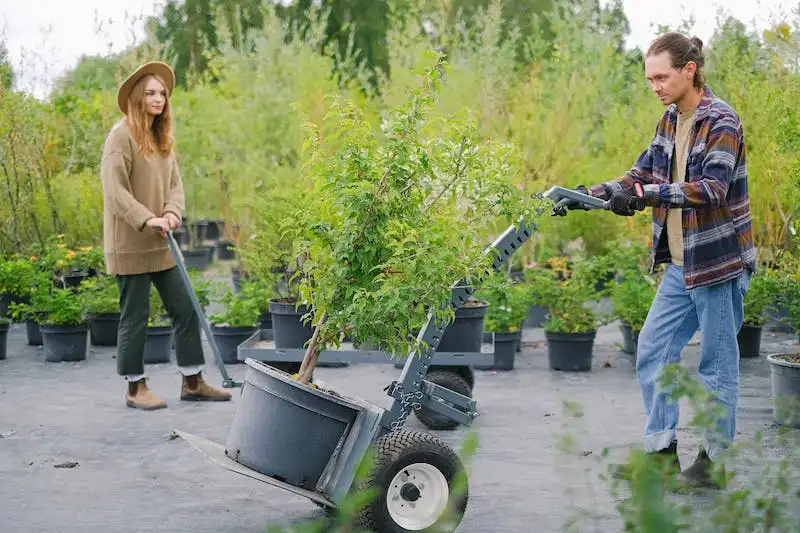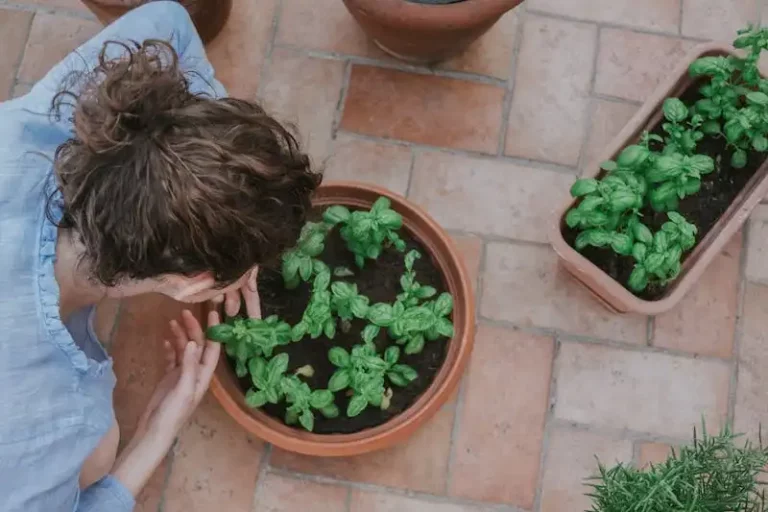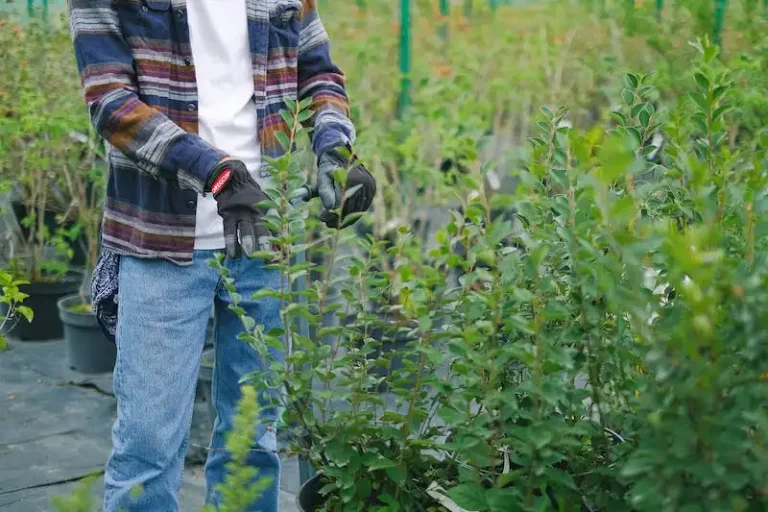Gardening is a wonderful way to spend time outdoors and create a beautiful landscape. But in order to maintain your garden properly, you need to take care of your gardening tools. Over time, tools can become rusty, dirty, and dull, which can make your gardening tasks much more difficult. That’s why it’s important to clean and care for your tools on a regular basis.
One basic cleaning solution for your gardening tools is vinegar. Vinegar is a great natural cleaner that can remove dirt and grime from your tools. Simply soak your tools in a mixture of vinegar and water overnight, and then scrub them with a wire brush to remove any stubborn dirt. This will help to keep your tools in good condition and prevent rust from forming.
In addition to regular cleaning, it’s also important to take proper care of your gardening tools throughout the season. For example, after each use, wipe down your tools with a cloth to remove any excess dirt and moisture. This will help to prevent rust from forming and keep your tools in good working condition. You should also sharpen the edges of your tools regularly to ensure that they are always in top shape.
When storing your gardening tools, it’s important to clean them thoroughly and apply a thin coat of oil to protect against rust. Linseed oil is a good option for this. After cleaning and oiling, store your tools in a dry area where they won’t be exposed to moisture. This will help to ensure that your tools stay in good condition and are ready to use whenever you need them.
By following these simple cleaning and care tips, you can keep your gardening tools in great shape and make your gardening tasks much easier. Remember to always clean and oil your tools regularly, sharpen the edges as needed, and store them in a dry area. With proper care, your gardening tools will last for many seasons to come.
Photo credits: [source]
A 4-Step Guide to Caring for Your Handheld Garden Tools
Gardeners know that their handheld garden tools are essential for tending to their plants and keeping their gardens looking their best. Proper care and maintenance is key to ensuring that these tools last a long time and stay in optimal working condition. Follow these four easy steps to keep your handheld garden tools clean and ready for use:
| Step 1: | Clean and Remove Debris | |
| – Begin by pruning any diseased or dead branches from your plants to prevent the spread of disease throughout your garden. | – Use a wire brush or steel wool to remove any dirt or rust from the blades or metal parts of your tools. | – Wipe the tools clean using a damp cloth. |
| Step 2: | Sanitize and Disinfect | |
| – Fill a bucket with a solution of equal parts water and bleach. | – Soak the tool blades in the solution for a few minutes to kill any bacteria or disease-causing pathogens. | – Rinse the tools thoroughly with clean water and dry them with a cloth. |
| Step 3: | Oil and Sharpen | |
| – Apply a little linseed oil to a cloth and rub it onto the wooden handles of your tools to protect them from drying out and cracking. | – Use a sharpening stone or file to sharpen the blades of your pruners or shears. This will ensure clean and precise cuts. | |
| Step 4: | Store Properly | |
| – Hang your tools on hooks or store them in a clean, dry area to prevent moisture and rust. | – If possible, keep your tools in a shed or garage to protect them from the elements. | – Regularly inspect your tools for any signs of wear or damage and replace or repair them as needed. |
Caring for your handheld garden tools requires a little bit of time and effort, but the benefits are well worth it. By following these 4 basic steps, you can keep your tools clean, sharp, and ready to use all season long. Happy gardening!
1 Clean and dry your garden tools
Caring for your gardening tools is essential to keep them in good condition and ensure they last for many seasons. One basic maintenance task that most gardeners overlook is cleaning their tools regularly. By keeping your tools clean and dry, you can prevent the build-up of soil, fungi, and other debris that can damage the tools and affect their performance.
Here is a step-by-step guide on how to clean and dry your garden tools:
| Step 1 | Remove any excess dirt or plant material from your tools. Use a wire brush or handheld brush to scrub away stubborn dirt. |
| Step 2 | Wipe down your tools with a cloth or towel to remove any remaining dirt or moisture. Pay extra attention to the blades, edges, and handles. |
| Step 3 | If your tools have rust or sap on them, use sandpaper or a file to gently remove these substances. Be careful not to file too much, as it can damage the tool. |
| Step 4 | Apply a thin layer of linseed oil or tape to the metal parts of your tools. This will help protect them against rust and corrosion. |
| Step 5 | If you’re storing your tools for an extended period, make sure they are completely dry before putting them away. Moisture can lead to rust and other damage. |
By following these simple tips, you can keep your garden tools clean and in top shape. Regular cleaning and maintenance will not only extend the lifespan of your tools but also make your gardening tasks easier and more enjoyable.
2 Sharpen each piece
Sharpening your gardening tools is an important step in their maintenance. It helps to keep them clean and makes your gardening tasks easier.
- Shears: Regular pruning shears can be sharpened using a basic sharpening tool or sanding stone. Make sure to wear gloves to protect your hands while sharpening. Apply a little bit of oil to the blades to keep them in good condition.
- Shovels and spades: These tools can be sharpened using a file. Make sure to clean the blades thoroughly before sharpening. If they are too dirty, soak them in a solution of bleach and water for a while, then scrub off the dirt. After sharpening, wipe them clean with a towel.
- Pruning saws: Sharpening pruning saws is similar to sharpening shears. Carefully file the teeth, making sure to maintain the same angle on each tooth. Sanding the blade can also be useful to keep it in good shape. Always wear gloves and use caution when sharpening pruning saws.
- Other tools: There may be other gardening tools in your shed that can be sharpened, such as hoes, rakes, and loppers. Follow the same steps as above to sharpen these tools.
Remember, sharpening your gardening tools is not only for their maintenance but also for the health of your plants. Clean, sharp tools make cleaner cuts, which are less likely to introduce fungi or diseases to your plants.
Make sure to store your newly sharpened tools in a clean and dry area. Keeping them off the ground and away from soil will help to keep them clean for longer.
Check out our other gardening posts for more cleaning and maintenance tips!
3 Apply oil
Applying oil to your gardening tools is a basic step in their maintenance. It helps to keep the tools clean and protected from rust and fungi. Some gardeners love to use linseed oil, while others prefer plain vegetable oil or a mixture of oil and vinegar. No matter which type you choose, applying oil is a necessary step.
When applying oil, make sure to cover the entire surface of the tool, including the blades and handles. If the tool has any wooden handles, you may want to apply a little extra oil to keep them in good condition. Use a rag or a brush to apply the oil evenly.
Why is oiling your tools important? Well, it helps to prevent rust from forming and keeps the metal blades sharp. It also provides an extra layer of protection against dirt and debris that can accumulate during use. Regular oiling can prolong the lifespan of your tools and make them more efficient in tending to your garden.
When should you apply oil to your tools? It’s a good idea to oil them after each use or at least once a season. If you notice that the blades are getting dull, you may also need to oil them more often. Keeping your tools clean and oiled will make gardening easier and more enjoyable.
If you have handheld pruning shears or other cutting tools, the same rules apply. Apply oil to the blades and wipe away any excess. This will keep the blades clean and sharp, making pruning and cutting branches a breeze. Just be sure to clean and oil any tools that have been used on diseased plants, as you do not want to spread the disease to other plants in your garden.
In order to keep your tools in great shape, it’s important to clean and oil them regularly. Following these simple tips will help you extend the lifespan of your gardening tools and make them more effective in taking care of your garden.




